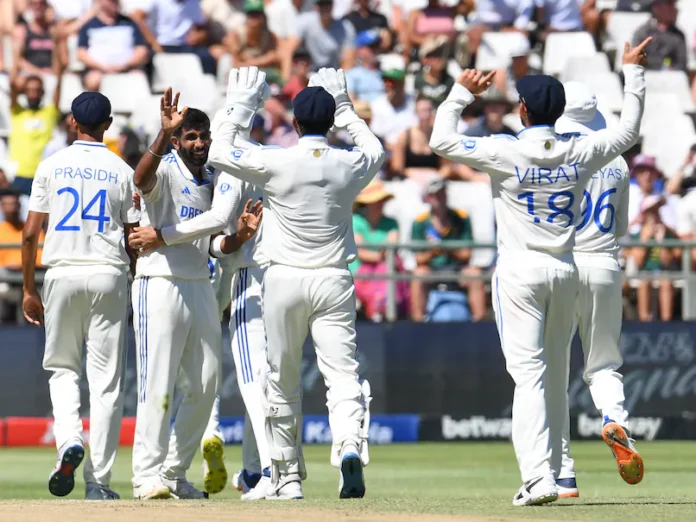After a tough loss in Centurion, the Indian cricket team, led by Rohit Sharma, turned the tables in the second Test in Cape Town. They wrapped up the match in just 107 overs, winning by seven wickets and leveling the series 1-1 – their first such victory in South Africa in 13 years.
This Cape Town Test now holds a unique record, being the shortest-ever Test match in the history of the format, measured by the number of balls bowled. The previous record dated back to 1932 when Australia and South Africa completed a match in 109.2 overs (656 balls).
Day 2 of the second Test saw Aiden Markram scoring an impressive hundred, but a brilliant spell by Jasprit Bumrah (6/61 in 13.5 overs) kept India on track for a series-levelling win. Markram’s aggressive innings helped Proteas reach 176 all out, setting India a target of 79 runs on a challenging pitch. India reached the target with seven wickets to spare.
Bumrah, with his ninth five-wicket haul in Test cricket, adapted his bowling to the conditions. Although the ball didn’t move as much as on the opening day, Bumrah’s skillful use of length troubled the Proteas.
As wickets fell, Markram took on the Indian bowlers, especially targeting the inexperienced Mukesh Kumar and Prasidh Krishna. With an attacking field set by Rohit Sharma, Markram hit 17 fours and two sixes off Prasidh.
The morning session saw Bumrah’s vintage performance, quickly dismissing South Africa’s middle-order. Markram, however, resisted, forming a crucial partnership with Rabada. Mohammed Siraj eventually ended Markram’s innings with a mistimed shot.
The victory highlighted India’s resilience and smart play, making this Test match a historic moment in cricket. The match’s possible distinction as the shortest-ever Test, in terms of overs bowled, adds to its significance.
With contributions from PTI, the series showcased the unpredictable and thrilling nature of Test cricket, leaving fans and experts impressed by the intense contest between India and South Africa.

